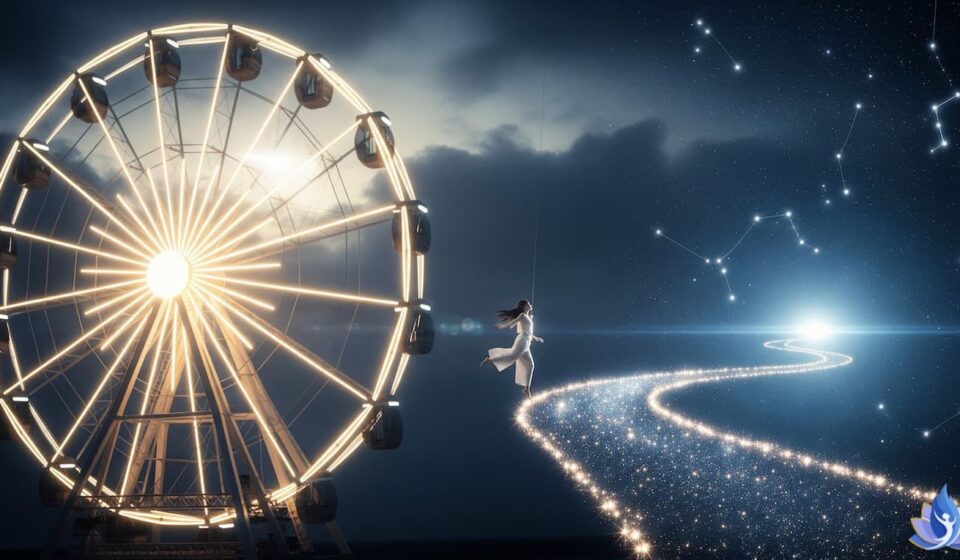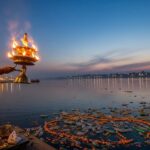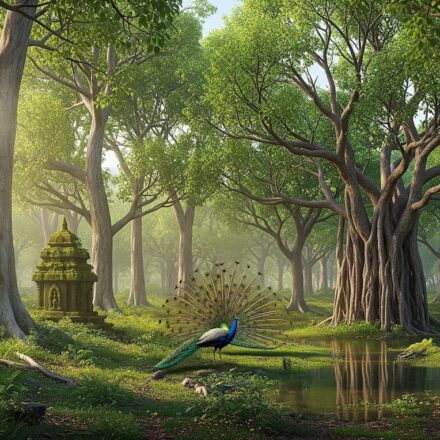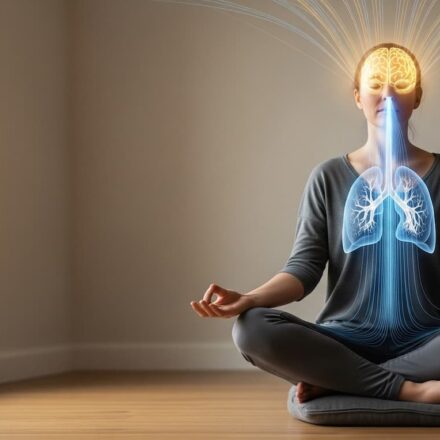
The Most Liberating Idea in Hinduism Isn’t Reincarnation, It’s This.
The Allure of the “Do-Over”
Table Of Content
Let’s admit it, the idea of reincarnation is captivating. Who were we in a past life? A queen in ancient Egypt? A poet in Renaissance Italy? The concept is a staple of pop culture, fueling our imagination with the promise of endless do-overs, a cosmic mulligan for the soul.
We see reincarnation as the ultimate spiritual safety net. Messed up this life? Don’t worry, you’ll get another shot. It’s a fascinating, comforting, and endlessly discussable idea. And for many, it’s the most interesting concept Hinduism has to offer.
But what if I told you that’s a profound misunderstanding? What if reincarnation isn’t the prize, but part of the problem? What if the most radical, breathtakingly liberating idea in Hinduism isn’t about getting another life, but about becoming free from the need for one?
The Ferris Wheel You Don’t Realize You’re On
In Hindu philosophy, the cycle of reincarnation is called samsara. And it’s not seen as a grand adventure through time. It’s seen as a relentless, exhausting Ferris wheel of birth, death, and rebirth, powered by our actions (karma) and our attachments.
Each life is another turn on the wheel, bringing with it the same old patterns of joy and sorrow, success and failure, attachment and loss. Sure, the scenery might change, but the ride is always the same. It’s a cycle of suffering we are trapped in, life after life.
From this perspective, wanting to be reincarnated is like getting off a dizzying ride only to say, “Great, let’s go again!” The ancient sages weren’t interested in getting a better seat on the next ride. They wanted to get off the Ferris wheel entirely. And that exit, that ultimate freedom, is called Moksha.
Moksha: The Ultimate Freedom
Moksha is a Sanskrit word that means liberation, release, and freedom. It is the ultimate goal of the spiritual journey. It’s not about going to a heavenly paradise after you die; it’s about achieving a state of being, right here and now, that is so complete, so peaceful, and so whole that you are freed from the entire cycle of suffering and rebirth.
Moksha is the realization of your true nature. It’s the understanding that you are not your temporary body, your fleeting thoughts, or your fragile ego. You are the Atman—the eternal, unchanging, blissful consciousness that is one with the ultimate reality of the universe, Brahman.
This isn’t just a philosophical idea. It is the most liberating experience a human being can have. It’s the end of fear, the end of wanting, and the end of the deep-seated feeling that something is missing.
Wisdom in Verse: The Key to Liberation
The Mundaka Upanishad, one of the most profound ancient texts, describes this state of liberation with breathtaking clarity. It explains that freedom isn’t something you earn through rituals; it’s something you realize through knowledge.
ब्रह्मैवेदममृतं पुरस्ताद्ब्रह्म पश्चाद्ब्रह्म दक्षिणतश्चोत्तरेण | अधश्चोर्ध्वं च प्रसृतं ब्रह्मैवेदं विश्वमिदं वरिष्ठम् ||
brahmaivedam amṛtaṁ purastād brahma paścād brahma dakṣiṇataś cottareṇa, adhaś cordhvaṁ ca prasṛtaṁ brahmaivedaṁ viśvam idaṁ variṣṭham.
(Mundaka Upanishad, 2.2.11)
Translation: “All this that is in front is the immortal Brahman, indeed. Brahman is behind, Brahman is to the right and to the left. It spreads forth below and above. Brahman is all this, the greatest.”
And then, the Upanishad delivers the final, liberating truth:
ब्रह्म वेद ब्रह्मैव भवति
brahma veda brahmaiva bhavati
(Mundaka Upanishad, 3.2.9)
Translation: “He who knows that supreme Brahman becomes Brahman himself.”
This is the key. Liberation isn’t about becoming something you’re not. It’s about realizing what you have always been. When you truly know your oneness with the infinite, the chains of samsara simply fall away. The Ferris wheel stops. You are free.
What Liberation Means for Your Modern Life
You don’t have to be an ancient sage meditating in a cave to walk the path of Moksha. The pursuit of liberation begins now, in your daily life. It means:
- Freedom from Your Past: You stop defining yourself by past mistakes or past lives. Your true self is untouched by karma.
- Freedom from Anxiety about the Future: You stop worrying about what you will become, because you are already whole and complete.
- Freedom in the Present: You begin to untangle your happiness from external outcomes. You find peace not in getting what you want, but in wanting what you have.
Reincarnation is the story of the journey. Moksha is the realization that you have already arrived. It is the profound, life-altering understanding that the peace, joy, and freedom you have been seeking in life after life is, and always has been, your true nature. And that is the most liberating idea of all.
What would you want to be liberated from in your own life?
Is it a fear, an attachment, a limiting belief? Share your thoughts on freedom in the comments below!
If this article opened up a new perspective for you, share it with someone who is fascinated by the journey of the soul. And subscribe for more timeless wisdom that liberates the mind.










